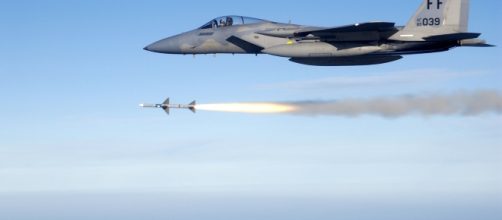Russia has issued a threat that all American aircraft operating west of the Euphrates River will now be considered “targets” by its forces in Syria. The warning stopped short of a promise to shoot United States planes down. But, the threat demonstrates Russian anger at the downing of a Syrian bomber by the United States Navy F/A-18 while attacking Syrian Democratic Forces positions. The Russians are also suspending a communications line between its military and the American forces operating against ISIS in Syria.
Why are the Russians making such threats?
In the face of it, an attack by Russia on American forces in Syria would be an insane act. Russia in the region is entirely outclassed by the military power that the United States could bring to bear in the area in the event of a conflict.
Doubtless, the real reason that Russia is making such threats is to bring psychological pressure on the Trump administration which has become decidedly more aggressive in fighting ISIS in Syria and Iraq. Russia would like to reestablish a viable Syrian state under its control in the Middle East. Such an event would run contrary to American interests, especially since such a state would also be an ally of Iran. The threat can, therefore, be seen as a way to make the United States think twice before taking aggressive action against Syria.
What if a conflict between Russia and the United States breaks out?
Supposing that a Russian anti-aircraft battery or a fighter took a shot at an American aircraft, the likely response by the American military would be to either take out the battery or the airfield from where the offending jet fighter took off. If an American aircraft were actually shot down, more forceful measures would be undertaken. What happens next depends on whether the two sides are willing to draw back and start negotiating.
The United States could defeat the Russian military in Syria in short order. However, Russian leader Vladimir Putin would have endless opportunities to make trouble elsewhere in the world, say against the Baltic States or Poland, both NATO allies.
Things could get as nasty as they haven’t been since the cold war.
Speaking of the Cold War, the scenario that kept military planners awake at night and was the basis of lurid television productions like “The Day After” in which things get so out of hand that mushroom clouds start popping around the world is very unlikely. Both the United States and Russia have made certain through technical means that an accidental thermonuclear war cannot happen. Preparations to start such a war would be time-consuming and would be easily detected. Such a move would be irrational even in the superheated atmosphere of brinksmanship.


